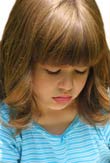Two Distinct Types of Autism Found

Researchers have identified two biologically distinct forms of autism, it was reported today.
One type involves brain abnormalities — children with this form have enlarged brains and usually develop autism by 18 months of age. Children with the second type have immune systems that aren't working properly, according to the newspaper the Australian.
The researchers likened their findings to the discovery in the 1960s that there are different forms of cancer. They hope their work will lead to the development of more individualized therapies for autism.
"If we were trying to cure all cancer at the same time, it would be hopeless," study researcher David Amaral, a professor of psychiatry at the University of California Davis, told the Australian. "Well, the same is true for autism," Amaral said.
"The ultimate goal is when a child comes into the clinic, rather than saying you just have autism, to be able to say you have autism type A, or type B, or type C," Amaral said. From there, researchers would know which treatment would work best for the condition, he said.
"As an example, if a child has an immune form of autism, it may be that what we want to do is manipulate their immune system rather than trying something else that may be related to synaptic functions in the brain," Amaral said.
The researchers will present their findings at the Asia Pacific Autism Conference in Perth today.
Get the world’s most fascinating discoveries delivered straight to your inbox.
Amaral and his colleagues began their autism research in 2006. They have been studying various factors that may contribute to autism, including brain growth, genetics and environmental influences in kids aged 2 to 3 and a half years old.
In addition to the two types already identified, the researchers hope to find many more forms.
This story was provided by MyHealthNewsDaily, a sister site to LiveScience. Follow MyHealthNewsDaily on Twitter @MyHealth_MHND. Find us on Facebook.
 Live Science Plus
Live Science Plus






